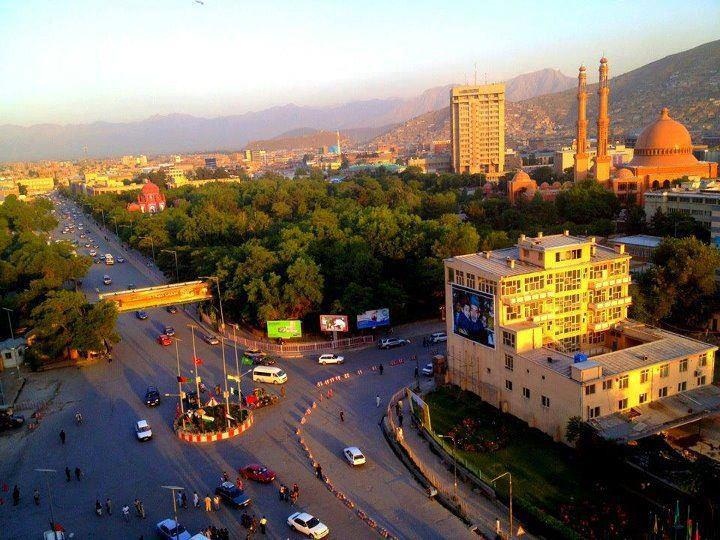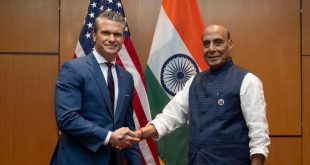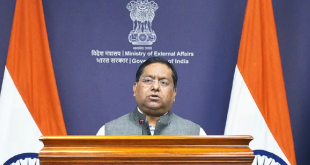By M. Nadeem Alizai-KABUL: Amid concerns and despair, January 1, 2016 brought new dawn of hope to some Afghans. Although, new solar year will begin on March 21, 2016 but due to presence of foreign forces and scores of international organizations, the war-weary nation sees the future and past in the timeline of the Gregorian calendar. The year 2015 was mostly about on-off relations between Afghanistan and Pakistan, rise in civilian casualties, security lapses, tug-of-war between the leaders and with the parliament. Infighting among the Taliban commanders over the leadership after death reports of Mullah Omer confirmed, emergence of Daesh as a growing challenger, stoning of women to death, beheading of ethnic Hazara passengers, delay in the Wolesi Jirga polls and incomplete Cabinet were the other major issues in 2015. Most of these problems remained as it is and will continue to haunt the nation in 2016.
According to the United Nations, 1,592 Afghan civilians were killed and 3,329 injured in the first half of 2015. Complete report about the civilian and military casualties yet to be published. Indeed, insecurity is a great challenge. There is no second opinion in it.
Capture of the Kunduz city for a brief period in the late September, control of the key government buildings in Sangin district of volatile Helmand province by the Taliban insurgents, kidnapping and beheading of Hazara passengers in Zabul province and killing of aid workers and government officials raised many eyebrows over security situation in the country. Daesh has established a radio station to broadcast its propaganda messages and brainwash young people in Nangarhar. Furthermore, the Taliban’s new leader Mullah Mansoor said that the group would not end fighting unless all the foreign troops were out of the country, thus, putting the new government in more trouble. This statement has overshadowed peace prospects. Deadly terror attacks which claimed lives of innocent people had proven that the militant group would not renounce violence. Therefore, relations between Pakistan and Afghanistan remained strained.
Minimum participation of women in the administration and violence against women are other challenges that made headlines in 2015. The Afghan Women Network (AWN), a group trying to protect rights of women and girls in the country, urged the government on December 28 to deliver on its pledges about increased participation of womenfolk in the different governmental organizations.
Expressing serious concerns over violence against women, Shahla Farid, a member of the group, said that President Ashraf Ghani and Chief Executive Officer (CEO) Abdullah Abdullah promised during their election campaigns to take measures and strengthen role of women in different fields “through increased participation”.
“Despite formation of the National Unity Government and capability of women, the two leaders had not fulfilled their promises. Failure of President Ghani and CEO Abdullah to deliver on the pledges had created problems for women,” Ms Shahla Farid lamented.
According to her, dismissal of Ghor’s governor Sima Joyinda, delay in nomination of a woman to the high council of Supreme Court as member, existence of illegal and traditional courts that decide fate of women, stoning of women to death, honor killing and violence against women are other issues that prevented women from playing their role in development of the country.
She warned that low participation of women in the governmental organizations would lead to weakening of democracy. Ms Shahla Farid is right but the government is perhaps busy in resolving other issues, probably administrative problems such as hiring, fixing and reshuffling of officials. It is not a time consuming or a herculean task to appoint women at important positions in the capital city and provinces, given that the leaders wish so.
Moreover, the Wolesi Jirga shall give vote of confidence to women because it is essential to empower women. Our centuries-old mindset will not put this country on the track of development but we have to keep pace with the modern world. Those who are committing violence against women should be punished. The sooner the Elimination of Violence Against Women Law is approved is better.
In November 2015, the Afghanistan Independent Human Rights Commission (AIHRC) released a report saying that cases of women’s killings had doubled in the past six months as compared to the same period of 2014. The commission documented 190 murder cases, revealing the number of killing cases have spiked significantly.
“Perpetrators of 51 murder cases were arrested and the remaining 139 [73 percent] are on the run. The commission did not record the mentioned cases but it was documented by supporting and expanding women’s rights section,” Afghanistan Times quoted Qadria Yazdanparast , the Commissioner for Women Support Department of the AIHRC.
Last year in the same period, 81 cases were reported. The AIHRC recorded 2,579 violence cases, which demonstrates 7.39 percent increase as compared to the same period of 2014. The AIHRC recorded 731 cases (28.34 percent) of physical violence, 183 cases (7.10 percent) of rape, 900 cases (34.90 percent) of verbal and mental violence, 550 cases (21.33 percent) of economical violence and 215 (8.34 percent) cases of other types of violence.
Corruption and maladministration are other problems that the government could not resolve in 2016 because there had been plenty of promises but little action. Corruption is still rampant in most of organizations. It is a difficult journey for an investor to complete the official process and invest in the country. Hence, investment has decreased.
However, there were also some success and good news. It will be injustice to criticize the government and not appreciate it for the good things. Despite minimum resources, the security forces remained successful in defeating the insurgents. Western media had repeatedly raised concerns over future of the government. Fortunately, the Taliban are fighting now for their survivals. The group knows that it could not overthrow the government neither it could maintain control over cities nor it is dominating the scene because Daesh has emerged as a challenger. Second, there has been decrease in the poppy cultivation.
In October 2015, the UN Office on Drugs and Crimes (UNODC) and Ministry of Counter Narcotics reported 48 percent decline in opium production. According to a survey report conducted by the two bodies, poppy cultivation has declined by 19 percent and opium production by 48 percent in 2015. The report estimated under poppy cultivation area 183,000 hectares in 2015. In 2014, poppy was cultivated on 224,000 hectares land. The cultivation has significantly decreased for the first time since 2009, Afghanistan Times reported. Inauguration of the Turkmenistan-Afghanistan-Pakistan-India (TAPI) gas pipeline project was also good news for Afghans.
According to a news report published by Afghanistan Times, Afghan government would start work over its section of TAPI project this year (2016). The project will cost $10 billion and will conclude in 2020.
TAPI project will create permanent jobs for around 7,000 Afghans. Additional 2,000 people will be hired to ensure security of the project. He said that a 750 kilometer portion of the pipeline would pass from Herat, Farah, Helmand, Nimroz and Kandahar provinces to reach Pakistan.
In a nutshell, the New Year has brought some hopes but Afghans still have the old dreams—restoration of peace and stability, employment and improved economy. Other challenges such as violence against women, electoral reforms, improved health and education services and others will continue to haunt the nation.
 Afghanistan Times Latest News and Analysis from Afghanistan and the Region
Afghanistan Times Latest News and Analysis from Afghanistan and the Region




